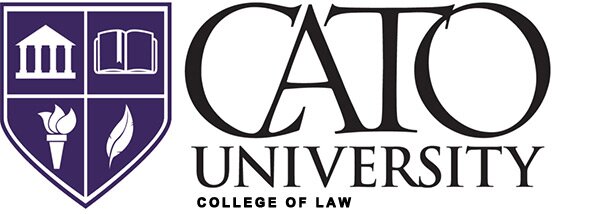March 15-17, 2018
Royal Sonesta Hotel New Orleans • 300 Bourbon St, New Orleans, LA
About Cato University | Schedule | Register | Scholarship | Readings
“Where there is no Law,” wrote John Locke, “there is no freedom.” If we wish to live in a free society, the rule of law must be paramount — equally applicable to those who govern and those who are governed. But — how much law? How is it crafted and enforced? And, what challenges does the American constitutional system of law face at a time of growing political and ideological hostility? Cato University’s College of Law will energetically address these topics, examining our treasured system of law from key perspectives: the functions of law, its composition, the processes of the American legal system, law’s limits on government and its ability to preserve and advance liberty, and the critical heartbeat of American constitutional law.
Schedule
| Thursday, March 15 | |
| 3:00 – 6:00PM | Registration |
| 6:30 – 7:30PM | Reception |
| 7:30 – 9:30PM | Law, Liberty, and Social Order Law isn’t just for lawyers, but concerns and impacts everyone. A look at how simple rules that respect and protect the liberty of individuals are the foundation of complex social orders. Dinner Speaker: Tom G. Palmer, Senior Fellow, Cato Institute, and Director of Cato University |
|
Friday, March 16 |
|
| 8:00 – 9:00AM | Breakfast |
| 9:00 – 10:15AM | Making Deals and Making People Whole Good laws — especially contract law and tort law — help people live productively and in peace, without the threat of criminal sanction. Understanding how those laws work is useful not only in business, but in all our social interactions. Speaker: Clark Neily, Vice President for Criminal Justice, Cato Institute |
| 10:15 – 10:45AM | Break |
| 10:45 – 12:00PM | Law and Order without the State An examination of how many recent developments, particularly those involving technology, allow communities to order their affairs without the interference — and often despite the prohibitions — of state actors. Speaker: Marcus Cole, William F. Baxter-Visa International Professor of Law, Stanford University Law School |
| 12:00 – 1:30PM | Lunch |
| 1:30 – 2:45PM | The Role of Judges in Enforcing Constitutionally Limited Government What is the proper role of judges in a system of limited government? Today’s judges have largely abdicated their duty by presuming the constitutionality of government action in most settings, rather than actually judging government actions by the standards of the Constitution. Speaker: Clark Neily, Vice President for Criminal Justice, Cato Institute Download Podcast of "The Role of Judges in Enforcing Constitutionally Limited Government" |
| 2:45 – 3:15PM | Break |
| 3:15 – 4:30PM | From Legal Theory to Legal Practice Taking up the cause of liberty in the courts is a serious business. A first-person, behind-the scenes look at how pro-freedom public interest law firms are vindicating individual rights in the courts. Speaker: Dana Berliner, Senior Vice President and Litigation Director, Institute for Justice |
| 4:30PM | Free Time |
| 6:30 – 7:30PM | Reception |
| 7:30 – 9:30PM | Economic Liberty in the Constitution The Constitution was designed to protect a variety of economic liberties, including the right to earn an honest living, but the Supreme Court has subverted that constitutional design by refusing to enforce those provisions consistent with the text, history, and purpose of the Constitution. Speaker: Clark Neily, Vice President for Criminal Justice, Cato Institute |
|
Saturday, March 17 |
|
| 8:00 – 9:00AM | Breakfast |
| 9:00 – 10:15AM | Money without Government Bitcoin, Ethereum, Ripple, and other cryptocurrencies have caught the attention of investors, government regulators, and the public, but the rise of cryptocurrencies is just the tip of a larger iceberg: money outside the state. What are the opportunities and hazards ahead? Speaker: Marcus Cole, William F. Baxter-Visa International Professor of Law, Stanford University Law School |
| 10:15 – 10:45AM | Break |
| 10:45 – 12:00PM | The Four Fundamental Problems with America’s Criminal Justice System What are the most fundamental problems with America’s criminal justice system and what can be done to ensure both peace and justice in America’s communities? Speaker: Clark Neily, Vice President for Criminal Justice, Cato Institute Download Podcast of "The Four Fundamental Problems with America’s Criminal Justice System" |
| 12:00 – 1:30PM | Lunch |
| 1:30 – 2:45PM | The Law of Autocracy versus the Law of Markets How can — and do — free people circumvent authoritarian governments to secure their rights and engage in mutually beneficial exchanges? Speaker: Marcus Cole, William F. Baxter-Visa International Professor of Law, Stanford University Law School |
| 2:45 – 3:15PM | Break |
| 3:15 – 4:30PM | Know Your Rights when Dealing with the Police What should you do — and not do — when interacting with police during a traffic stop, criminal investigation, or other interaction not of your choosing? Speaker: Clark Neily, Vice President for Criminal Justice, Cato Institute Download Podcast of "Know Your Rights when Dealing with the Police" |
| 4:30PM | Free Time |
| 6:30 – 8:30PM | Restoring the American Constitutional Order What principles inform the U.S. Constitution? How have they been systematically subverted? And — what can Americans do to restore the integral order of the American constitutional order? Dinner Speaker: Roger Pilon, Vice President for Legal Affairs, Cato Institute Download Podcast of "Restoring the American Constitutional Order" |
The focus of Dana’s litigation at IJ has been property rights. She successfully represented the Community Youth Athletic Center, a boxing gym and mentoring program for at-risk youth, which challenged the city of National City’s authorization of taking the CYAC’s property for private development; the California Court of Appeal ruled in 2013 that the authorization of eminent domain was invalid and that National City had violated California’s Public Records Act. Dana also represented the home and business owners in Norwood, Ohio, who, on July 26, 2006, secured a unanimous ruling from the Ohio Supreme Court that the city could not take their property for a privately owned shopping mall and “lifestyle center.” Along with co-counsel Scott Bullock, she represented the homeowners in Kelo v. New London, in which the U.S. Supreme Court ruled that cities could condemn property because other uses may produce an increase in tax dollars and jobs. Dana, along with many others at IJ, worked to turn the nationwide outrage caused by the decision into new state statutes, constitutions and judicial decisions that cut back on eminent domain abuse. She secured a ruling that the Village of Port Chester, N.Y., violated due process in its use of eminent domain to secure waterfront property. Since 2008, Dana has been recognized every year as a “Best Lawyer” in eminent domain and condemnation law by the publication Best Lawyers in America.
Roger Pilon is the Cato's Institute's vice president for legal affairs, the founding director of Cato’s Robert A. Levy Center for Constitutional Studies, the inaugural holder of Cato's B. Kenneth Simon Chair in Constitutional Studies, and the founding publisher of the Cato Supreme Court Review.
Prior to joining Cato, Pilon held five senior posts in the Reagan administration, including at State and Justice, and was a national fellow at Stanford’s Hoover Institution. In 1989 the Bicentennial Commission presented him with its Benjamin Franklin Award for excellence in writing on the U.S. Constitution. In 2001 Columbia University’s School of General Studies awarded him its Alumni Medal of Distinction. Pilon lectures and debates at universities and law schools across the country and testifies often before Congress.
His writing has appeared in the Wall Street Journal, the Washington Post, the New York Times, the Los Angeles Times, Legal Times, National Law Journal, Harvard Journal of Law and Public Policy, Stanford Law and Policy Review, and elsewhere. He has appeared on ABC’s Nightline, CBS’s 60 Minutes II, Fox News Channel, NPR, CNN, MSNBC, CNBC, C-SPAN, and other media.














